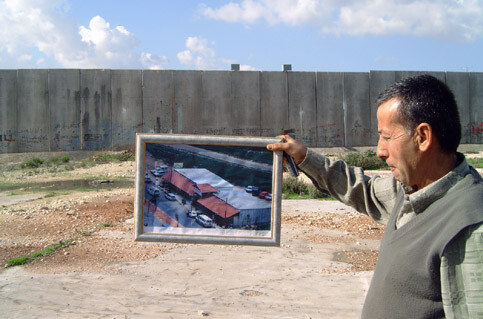Organization of the Petroleum Exporting Countries (OPEC) 15 March 2005

Palestinian man shows picture of a market that once marked this place before Israel constructed its massive wall. (Laurens den Dulk)
The OPEC Fund for International Development today extended a US$2 million grant to help alleviate social and economic hardship among Palestinians affected by the so-called separation wall. The grant will co-finance a major initiative that aims to generate employment, boost agricultural productivity and improve access to basic social services among the concerned communities.
An estimated 210,000 people reside in towns and villages in the West Bank that have been turned into isolated enclaves as a result of the separation wall. The wall has deprived people of education and healthcare facilities and cut off many agricultural communities from their farmland. The impact on economic activity and on the welfare of the population is severe.
Focusing on the northern governorates of Jenin, Tulkarem and Qalqilia, where conditions are worst, the project will construct schools and health centers, as well as municipal infrastructure such as water supply networks, local roads, garbage disposal systems and a fruit and vegetable market.
To help raise agricultural productivity, some 335 hectares of farmland will be rehabilitated and irrigation facilities constructed or repaired. Other works include the repair of artesian wells and the construction of rain harvesting ponds to increase water storage capacity for farmers. In addition, capacity building will be provided to 10 rural development organizations.
The Fund’s grant will be drawn from its Special Grant Account for Palestine, which was set up in 2002 with an initial endowment of US$10 million and replenished in June 2004 with an additional US$15 million.
Previous grants under the Account have helped finance the rehabilitation and construction of damaged homes and public buildings, the purchase of emergency medical equipment and assistance to Palestinian universities, together with a number of social and capacity-building projects.
Related Links